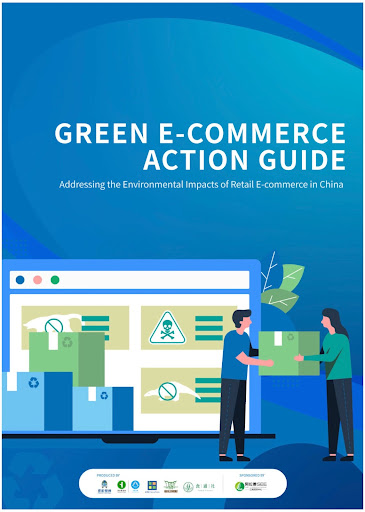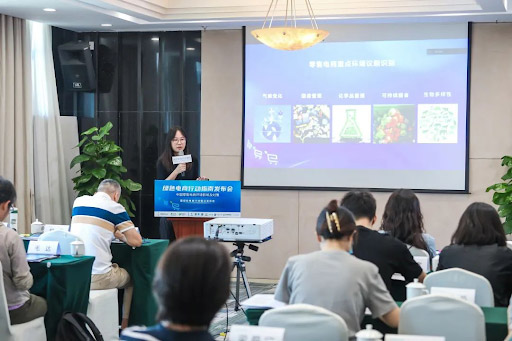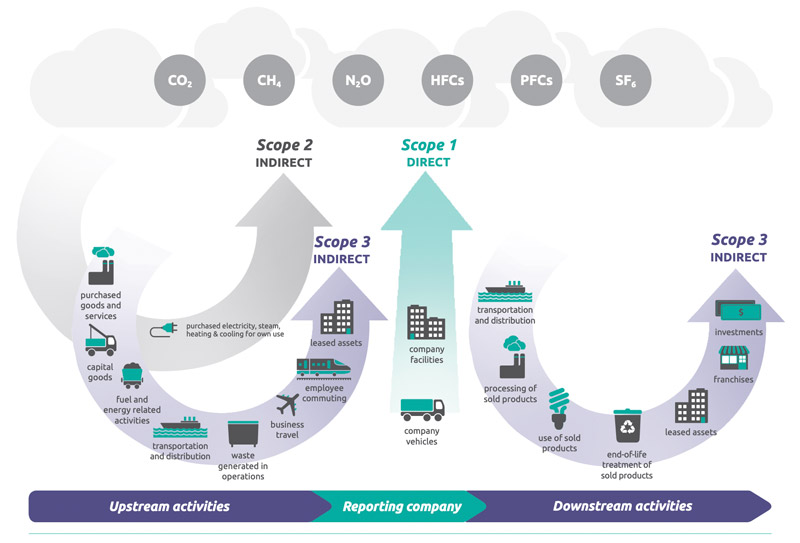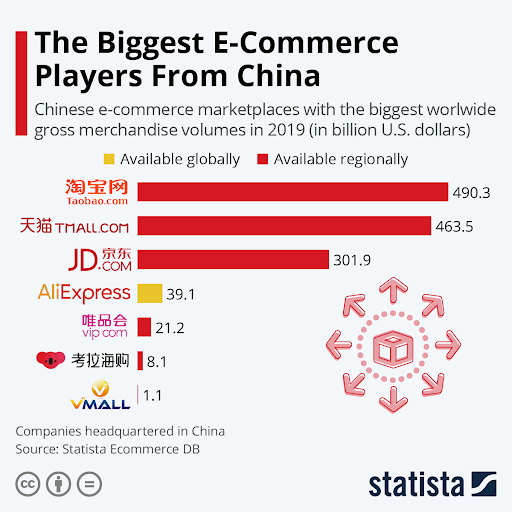On August 18, 2022, at the launch of the Green E-Commerce Initiative in Hangzhou, China, BFFP member organization Plastic Free China released the "Green E-Commerce Action Guide: Addressing the Environmental Impacts of Retail E-Commerce in China," together with Hangzhou E-Commerce Association (HZECA), SEE Foundation, Alxa SEE Jiangnan Project Center, Toxics-Free Corps, Naturefields, All-China Environment Federation, SynTao-Sustainablity Solutions, Return Wild, Carbon Stop and Mio Tech. This report systematically presents alternative paths for retail e-commerce companies to participate in green initiatives.

Green E-Commerce Action Guide: Addressing the Environmental Impacts of Retail E-Commerce in China
The report analyses the environmental impact of e-commerce retailers and offers corporate action recommendations for multiple environmental impact dimensions by incorporating domestic and foreign policy trends and best practices. The report presents several solutions for corporations to enhance environmental responsibility and play a more active role in China’s low-carbon green transformation.

Details of the report shared by Zheng Xue, Director of Plastic Free China
Firstly, the report suggests that e-commerce retailers set carbon emission reduction and neutrality goals encompassing Scope 1 to Scope 3, starting from data centers, office buildings, logistics and transport, packaging, and warehouses. Retailers should work out the pathways and timetables for emissions reduction, given that Scope 3 emissions represent the largest part of the overall carbon emission of the retail e-commerce sector.

Overview of GHG Protocol scopes and emissions across the value chain. Source: WRI/WBCSD Corporate Value Chain (Scope 3) Accounting and Reporting Standard (PDF)
Secondly, e-commerce retailers should reduce packaging waste and develop business models and operations based on reusable packaging.
Thirdly, the report recommends that e-commerce retailers take a two-stage approach to chemicals management. In the first stage, they should ensure that the products sold on the platform meet relevant national standards. In the second stage, they should exceed beyond regulatory compliance toward better protection of consumers’ rights and interests.
In addition, e-commerce retailers ought to develop internal governance mechanisms to remove all wild animals and plants protected by national regulations in their products, in addition to medicines, wildlife equipment, invasive species, and other products that threaten biodiversity.
Lastly, e-commerce retailers must fulfill their primary responsibility for environmental governance by taking initiative to remind consumers to prevent food waste and provide the means to assist them in doing so.
It is necessary for Chinese e-commerce corporations to take action.
In the past 20 years, China's e-commerce industry has experienced rapid development. China's online shopping has reached 782 million users, accounting for 79.1% of the overall Internet users. By 2020, China's online retail sales of goods had accounted for about a quarter of the total retail sales of public consumption goods. Online shopping has become an important channel for Chinese residents' consumption.
China's e-commerce industry emits huge amounts of carbon.
However, the rapid development of e-commerce has created significant carbon emission and environmental degradation problems. The total carbon emissions of Chinese e-commerce companies were 53.26 million tons in 2019, or 2.5% of the tertiary (service) industry's overall emissions, according to the Research Report on Total Greenhouse Gas Emissions of Chinese E-Commerce Enterprises. Additionally, the total carbon emissions from e-commerce are expected to rapidly expand over the next five years, reaching 116 million tons in 2025 at a growth rate of 73%. Without significant action, by 2025, China's emissions from the e-commerce industry will comprise one-fourth of the country's total emissions.

Source: Statistia
Chinese e-commerce industry still falls short in addressing action to reduce carbon emissions.
Compared to other e-commerce fields such as education, health, and so on, the retail field, as the largest total value e-commerce sector, should exert industry leadership and lead the e-commerce industry's green transformation. Chinese e-commerce retailers have launched some carbon emission reduction or green transformation initiatives addressing various environmental issues in recent years. This includes data center energy conservation and emissions reduction, renewable energy procurement, and advocacy by online delivery companies to reduce single-use utensils, e-commerce packaging reduction, and the trial of reusable boxes.
However, these actions are scattered, taken by individual companies on various issues, and they need more target guidance for an industry-wide green transformation. When faced with climate change, resource extraction, and biodiversity loss in our time, current e-commerce retailers' strategies and actions are insufficient to meet the long-term requirements and demands of national regulations, capital markets, and consumers.
It is time for e-commerce corporations to take significant actions to respond to these challenges. Hopefully, Chinese e-commerce corporations will follow the recommendations of the report to undergo green transformation.



